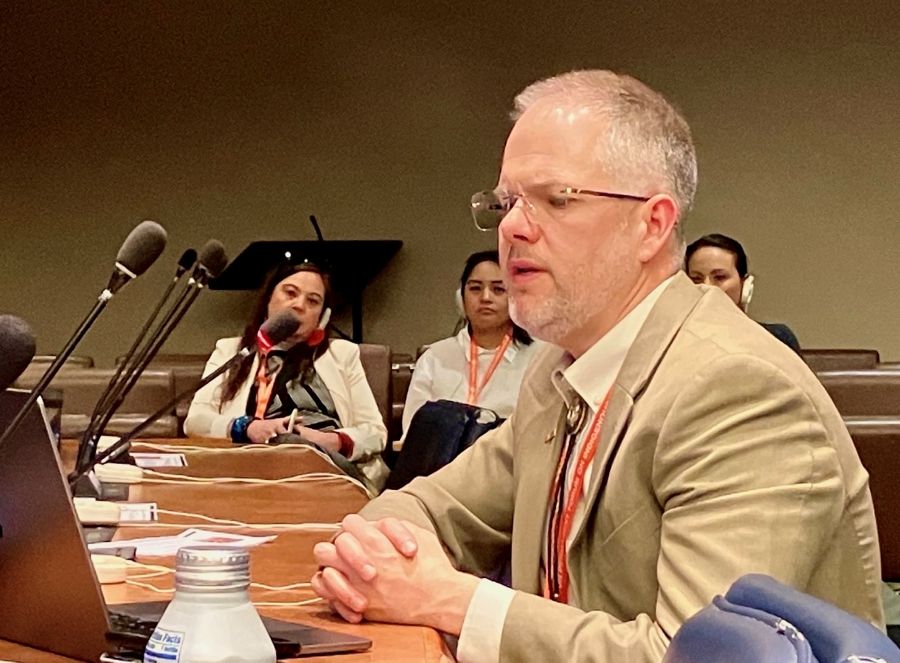Rusty D. Pickens, ECU Computer Science instructor, proud citizen of the Chickasaw Nation and a seasoned public interest technologist, delivered remarks before the United Nations Permanent Forum on Indigenous Issues, urging the inclusion of Indigenous voices and leaders in global artificial intelligence (AI) policymaking.
Pickens warned that AI could become the next tool of digital colonization if continuing to be developed under a scarcity and monetization mindset.
“AI systems are not neutral,” said Pickens, who formerly served as a technology official in the Obama administration at the White House and Department of State. “They reflect the biases of their creators. If Indigenous peoples are not meaningfully included in the decisions shaping these technologies, we risk repeating history: our data, like our land and knowledge, being exploited without consent.”
He called on the Forum and UN agencies to include Indigenous representatives on the High-Level Advisory Body on Artificial Intelligence, citing Articles 11 and 23 of the United Nations Declaration on the Rights of Indigenous Peoples (UNDRIP) as the foundation for Indigenous data sovereignty and self-determination in emerging technologies.
“AI absolutely can be a force for good, supporting language revitalization, cultural preservation, and economic development, but only if we lead with our values and protect our communities’ interests," Pickens said.
Pickens continues to advocate for Indigenous-led public interest technology solutions that empower tribal communities and preserve sovereignty in the digital age.
Submitted by Rusty Pickens

